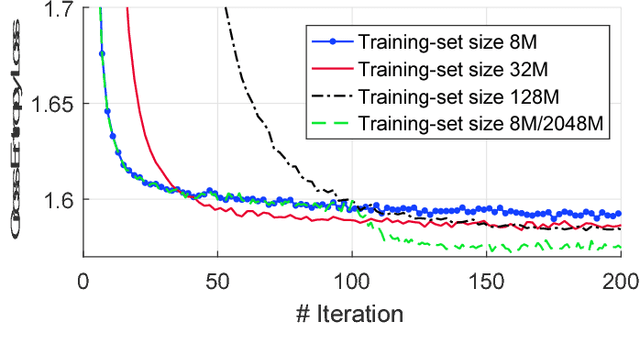Geometric Constellation Shaping for Fiber Optic Communication Systems via End-to-end Learning
Paper and Code
Oct 01, 2018



In this paper, an unsupervised machine learning method for geometric constellation shaping is investigated. By embedding a differentiable fiber channel model within two neural networks, the learning algorithm is optimizing for a geometric constellation shape. The learned constellations yield improved performance to state-of-the-art geometrically shaped constellations, and include an implicit trade-off between amplification noise and nonlinear effects. Further, the method allows joint optimization of system parameters, such as the optimal launch power, simultaneously with the constellation shape. An experimental demonstration validates the findings. Improved performances are reported, up to 0.13 bit/4D in simulation and experimentally up to 0.12 bit/4D.
 Add to Chrome
Add to Chrome Add to Firefox
Add to Firefox Add to Edge
Add to Edge